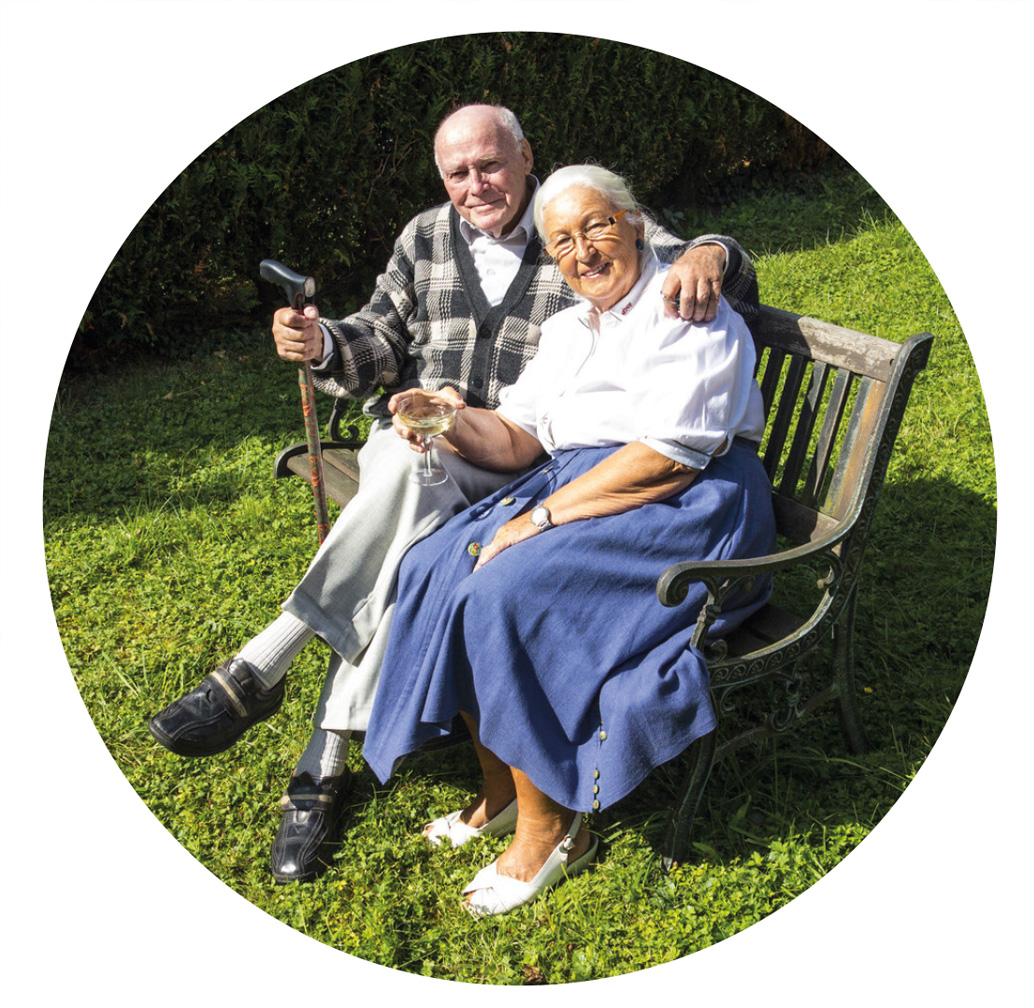 Stories about seniors who form relationships in later life are no longer headline news. However, things can become complicated when one or both of the “new loves” have been diagnosed with dementia.
Stories about seniors who form relationships in later life are no longer headline news. However, things can become complicated when one or both of the “new loves” have been diagnosed with dementia.
By Pat Irwin
Sam and Gloria are both residents of a retirement home’s memory care unit. Sam is widowed and Gloria divorced her husband a number of years ago. They first noticed each other in the dining room then held hands during the weekly movie, started sitting together at teatime and began eating meals together.
Initially, their adult children thought this was “cute” until a staff member’s morning check found Sam in Gloria’s room, and in her bed. The executive director had to inform the families, with predictable results! Sam’s family wondered why someone on the evening or night shift hadn’t noticed him wandering into her room. Gloria’s family were horrified that their prim and proper mother was being taken advantage of by an aggressive man. They couldn’t imagine that she might want to have companionship at night or, heaven forbid, a sexual encounter. Both families demanded that the executive director find alternate accommodations for one of the two and the entire unit was in uproar.
Sam’s family says…
“This woman made a play for our dad, knowing how wealthy he is. We have spent months putting together a family estate plan that provides for all of us and minimizes taxes. Everything about Dad’s will estate planning, inheritance and property has been carefully set up in various trusts and joint accounts. What if they decide to
get married? Everyone knows marriage nullifies a will! Is he going to give her access to his bank account and let her spend his money any way she likes? Will this person now expect to be power of attorney? No way!”
Here are the facts, and why they needn’t worry:
• A person’s banking arrangements cannot be accessed by any friend or common-law spouse unless accounts are made jointly or as tenants-in-common. In addition, common-law spouses are not entitled to funds after death unless the accounts have right of survivorship (“WROS”).
• While a person may make a provision in their will for anyone and need not share any information about their will (including its location), an individual who has been diagnosed as mentally incompetent cannot create a new will, and nor can their power of attorney.
• A parent may name anyone they like as their power of attorney for property to manage their property and finances and pay bills. But this attorney does not have carte-blanche to spend as they would wish; they have a fiduciary duty to comply with the stated wishes. In addition, a person who has been diagnosed as mentally incompetent would not be accepted to act as a power of attorney for either property or personal care.
Gloria’s family says…
“Mom and Dad had the most dreadful marriage and a painful divorce. The last thing she needs is to be married again! If they live together, doesn’t it mean they are ‘common-law spouses’?
“If they decide to share a suite, will they also split expenses? What if his care is more expensive than hers we’re not paying for that but if he’s her common-law spouse, doesn’t she have to?”
• Co-habitation does not necessarily mean the relationship is common-law or considered to be the same as marriage. Under the Family Law Act, couples may be deemed spouses after three years (in Ontario), as demonstrated by evidence of financial inter dependence, a sexual relationship, shared residence and household responsibilities, use of assets or vacationing together.
• Common-law partners do not have automatic rights to property under family law. If a common-law spouse dies without leaving a will then bank accounts, income and pensions are all frozen until probate is complete (perhaps six to 24 months), and the surviving spouse may not be entitled to reside in the “matrimonial” home.
• Under the federal Income Tax Act, common-law partners have rights similar to married couples property, RRSPs and RRIFs can be transferred to the common-law partner and income tax deferred until the death of the surviving partner.
In search of the best solution for everyone
The retirement home’s executive director met with both families and closed each interview with the same questions: Whose opinion would your parent value the most? Who could best shed some light on this topic?
While Sam and Gloria were of different religions, in both cases the families stated that a clergy member’s opinion would be very important to their parent.
Accordingly, the executive director contacted the rabbi and priest affiliated with the residence. They conferred, and their conclusion was that to give and receive love is a gift that should not be denied for any reason, including age or state of mind. They both sanctioned the couple to enjoy whatever intimacy they wished without the need for the sacrament of marriage, in recognition that they would be unable to formally commit, much less meet the requirement to sign a legal contract that an actual marriage would entail.
affiliated with the residence. They conferred, and their conclusion was that to give and receive love is a gift that should not be denied for any reason, including age or state of mind. They both sanctioned the couple to enjoy whatever intimacy they wished without the need for the sacrament of marriage, in recognition that they would be unable to formally commit, much less meet the requirement to sign a legal contract that an actual marriage would entail.
The families settled down and listened to more wise words from the clergy:
• Have you truly understood your parent’s social challenges feeling alone, being left out, wanting to be part of a couple? How well do you know your parent’s current interests, pastimes and friends?
• Meet your parent’s friends as a group, get to know them in general, and see this new person in that context. No, he’s not your dad but then, no one expects him to be, so don’t you expect it either. Make an honest effort to know this new person for himself, not as an extension of your dad or in comparison to your mom.
• Whether or not your parent is mentally competent, remind your parent about making decisions and commitments on their own. Reinforce that they should never commit to anything without discussing it with you or a trusted advisor, or to sign anything without you being present.
• Consult with the partner’s family; share your concerns and commit to ongoing communication they are probably concerned too.
• We are fortunate that our retirement community offers a continuum of care; as physical needs progress at different paces, Sam and Gloria need not be separated. Even if they are in different units of the building, they can have meals together and spend time with each other.
• Let’s work with both families to co-operate in
long-term care plans and management, so that no one is at cross-purposes even with the best of intentions.
Love is a blessing at any age. And as the baby boomer generation ages, you can be sure romance will always find a way. After all, All You Need is Love!
What do you think? Send your comments to patirwin@eldercarecanada.ca.
Pat M. Irwin, BA, AICB, CPCA, is founder and president of ElderCareCanada, which helps seniors and their families negotiate every aspect of the eldercare journey. She is also a professor of Distance Learning at Centennial College in Toronto.













